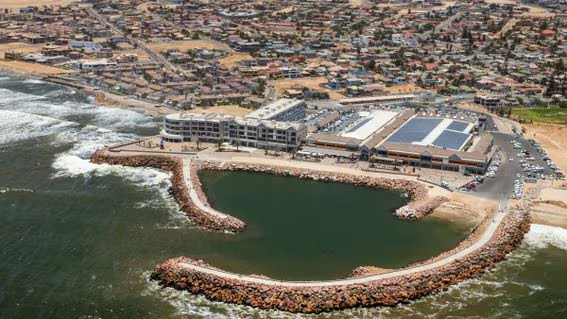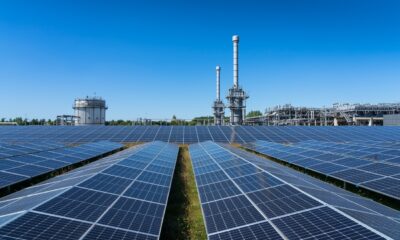Interest in Namibian assets has surged since more crude oil reserves were discovered there; as a result, an index fund that tracks local government bonds is about to see its largest annual increase ever.
On both the Namibian Stock Exchange and in South Africa, there is an exchange-traded fund that tracks local government bonds. Its value has gone up over 20% in U.S. dollars since Galp, based in Portugal, found out in April that the Mopane field could hold at least 10 billion barrels of oil.
There have been at least 12 other big oil companies interested since then.
With a return of almost 12% in U.S. dollars, the fund is on track for its best year ever. An ETF that follows the closely watched JPMorgan developing markets bonds index has gained 3.6% so far this year.
Since the finding, yields on local sovereign bonds have dropped even more. Since April, yields on bonds due in 2037 have dropped about 150 basis points, and yields on papers due in 2050 have dropped around 200 basis points.
“Most of the bonds issued are held by Namibian pension funds, but we are seeing some foreign buying now. We have seen massive yield compression … since the oil discoveries were first announced,” said Rowland Brown, co-founder of Cirrus Capital based in Windhoek.
Brown also said that Namibian government bonds were still settled on paper, so foreign investors were looking to the ETF to get more invested in the resource-rich country.
Major international energy companies are interested in the southwest African country because of several big finds along its coast in the past few years, even though the country hasn’t produced any oil or gas yet. Topaz Energy and Shell say they plan to start producing in 2029 or 2030.
The local stock market index has grown by more than 19% so far this year in U.S. dollars, while MSCI’s index of developing markets stocks has only grown by 7.5%.
The Namibian dollar has gotten stronger against the US dollar by 4.5% this year, ending a four-year losing run. Since December 2019, LSEG data shows that total central bank reserves have gone up by nearly $1 billion.
People will be interested in any changes to Namibia’s economic policy after the end-of-the-year presidential election. This is because the country has a lot of economic promise after finding oil.


 Sports2 days ago
Sports2 days ago
 Metro2 days ago
Metro2 days ago
 Metro24 hours ago
Metro24 hours ago
 Culture2 days ago
Culture2 days ago



































